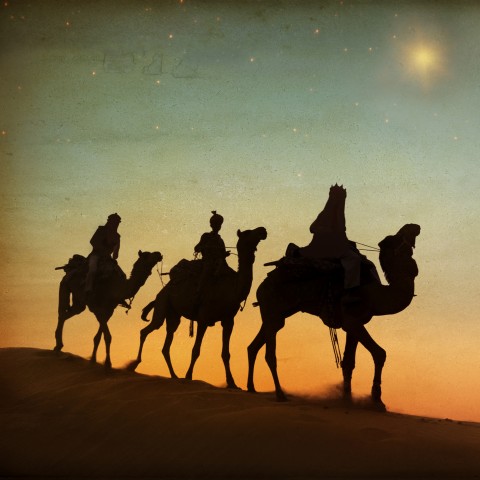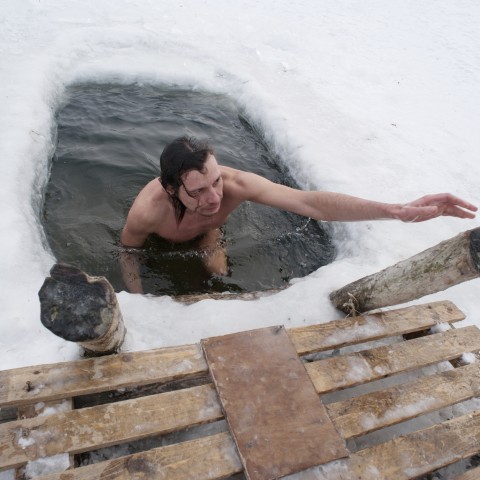On the Epiphany holiday, Finland both celebrates the visit of the Itämaan tietäjät, or “Magi,” to Baby Jesus and begins to wrap up the holiday celebrations for the year. In this article, you’ll learn about how Epiphany is celebrated in Finland, the story behind the holiday, and what kind of magic people associated it with in the past!
At FinnishPod101.com, it’s our aim to make every aspect of your language-learning journey both fun and informative—starting with this article!
Are you ready? Let’s dive in.
1. What is Epiphany in Finland?
Epiphany is a Christian holiday and marks the joulupyhien loppu, or “end of the Christmas holidays.”
Epiphany is even older than Christmas. It was established in the 200s, when it was originally celebrated to mark the birth of Baby Jesus. In the early Middle Ages, however, The Three Wise Men who came to pay tribute to the newborn Jesus became the subject of the celebration. In some countries, people also celebrate Epiphany as the day of Kristuksen kaste, or “the baptism of Christ.”
Epiphany is called loppiainen in Finland, a name that originated in the 1600s. The name loppiainen, which means Epiphany, refers to the end of Christmastime, because its root in the Finnish language comes from the word “to end.”
In Finnish folk tradition, however, Christmastime continued until St. Knut’s Day (Nuutinpäivä), on January 13. According to old laws, the Christmas Peace lasted for twenty days and therefore ended on this day.
On St. Knut’s Day, Nuuttipukki, a young man dressed as a Knut goat in a fur coat, horns, and a face mask made out of birch bark or leather, would appear at the door and figuratively take away Christmas.
2. Feast of the Epiphany Date
Each year, the Finnish celebrate Epiphany on January 6. The night before, January 5, is called Epiphany Eve.
3. How Do Finns Celebrate Epiphany?
Epiphany is a public holiday in Finland, and the shops are usually closed on that day.
The Christmas tree is taken out of the house according to tradition. Many will eat the Christmas dishes one more time, and provided that a gingerbread house has been built for Christmas, it may be broken and eaten during Epiphany. Christmas decorations and Christmas lights are stripped off and arranged back in their boxes until next Christmas.
On Epiphany, Finland returns to everyday life and mundane dishes. Therefore, the Finns have a lot of phrases associated with Epiphany and Christmas dishes, such as “When Epiphany flops, to the cup a cabbage plonks.” This phrase describes how a typical everyday food for the olden days, cabbage, would return to the dinner plates after Epiphany.
But, while the holidays are coming to an end, those who feel adventurous may decide to do some avantouinti, or “ice swimming,” on this day. It doesn’t sound very comfortable, but is a fun way to keep on the theme of baptism.
4. A Little Bit of Magic
Do you know how magic is associated with the Finnish Epiphany?
In the olden days, the weather for the next year was predicted from the weather of the Epiphany. This is told, for example, in the sayings “On Epiphany, half of the winter snow has fallen” and “If during Epiphany, the snow covers the tracks of the mouse, there will be no lack of snow.”
5. Essential Finnish Vocabulary for Epiphany
Ready to review some of the vocabulary words we went over in this article? Here’s the essential Finnish vocabulary for Epiphany!
- Loppiainen — “Epiphany”
- Avantouinti — “Ice swimming”
- Nuutinpäivä — “St. Knut’s Day”
- Lähetystyö — “Missionary work”
- Mirha — “Chrism”
- Johannes Kastaja — “John the Baptist”
- Herran ilmestyminen — “Epiphany of the Lord”
- Kristuksen kaste — “The baptism of Christ”
- Joulupyhien loppu — “End of the Christmas holidays”
- Itämaan tietäjät — “Magi”
- Tiernapojat — “Epiphany singers”
To hear each of these vocabulary words pronounced, and to read them alongside relevant images, be sure to check out our Finnish Epiphany vocabulary list!
Final Thoughts
We hope you enjoyed learning about the Finnish Epiphany holiday with us!
Do you celebrate Epiphany in your country? If so, do traditions differ from those in Finland? Let us know in the comments!
If you’re interested in learning more about Finnish culture, or want some more wintery words up your sleeve, you may find the following pages useful:
- Top 5 Finnish Pop Culture Things/Icons You Need to Know About!
- Runeberg Paiva: Celebrate the Day of Johan Ludvig Runeberg!
- Tourist Attractions in Finland
- Words for Winter Snow Days
- How Will You Spend Your Winter Holiday?
Learning Finnish doesn’t have to be boring or overwhelming—with FinnishPod101.com, it can even be fun! If you’re serious about mastering the language, create your free lifetime account today and start learning Finnish like never before!
Happy Finnish learning! 🙂













